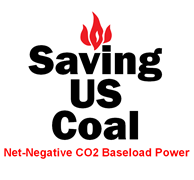
 






.gif)



|
Signature Sponsor


September 27, 2022 - After the House of Representatives passed the Build Back Better bill and negotiations over the climate and spending package moved to the US Senate, the Carbon Capture Coalition and coal companies lobbied to remove the guardrail requiring power plants to capture 75% of emissions. But a spokesperson for the Carbon Capture Coalition told EPI that the group “did not propose replacement language.” The Carbon Capture Coalition published a blog post criticizing the 75% capture rate requirement, which it later deleted. That post promoted a document that claims that the 75% capture rate requirement “will have no emissions benefit,” and for power plants, focused on concerns around applying the capture rate requirement to the entire facility, rather than each unit at a power plant: Power plants often consist of several separate electric generating units. For projects to be commercially viable, 90%+ capture will typically be applied on the newest units with the longest remaining life but will not be applied on older units that may be close to retirement. Capture often will need to be applied one unit at a time to enable learning from each subsequent project, and so that entire power plants are not offline for long periods. Because this new provision would require the entire plant to install capture at the outset, it will completely prevent carbon capture at many power plants. The Carbon Capture Coalition also distributed talking points against the 75% capture rate requirement, including in an email to Wyoming Governor staffers obtained by EPI through a public records request. Other public statements from the Carbon Capture Coalition also criticized the “harmful new percentage carbon capture requirements applied at the level of the whole facility,” suggesting that the group’s concern was with applying the capture rate requirement to the facility, instead of to each unit. But in a December 7, 2021 letter to Senators Ron Wyden, Chuck Shumer, and Joe Manchin, the Carbon Capture Coalition and several of its member companies lobbied against unit-level capture rate requirements as well, arguing that “a 75 percent minimum capture requirement for power plants on a facility-wide or per unit basis to claim the 45Q tax credit would severely limit the emissions reduction potential of the credit.” Several coal companies and trade groups joined that letter, as E&E News reported: Coal interests, for their part, have been vocal champions of removing the 75 percent requirement. The letter to Manchin was signed by the National Mining Association and the Wyoming Mining Association, interest groups representing the coal industry, as well as coal plant operators like Basin Electric Power Cooperative and the Prairie State Generating Co. Other companies pursuing coal carbon capture proposals also signed the letter, including Enchant Energy, the company seeking to take over the San Juan Generating Station in New Mexico in order to build a carbon capture project there, and Rainbow Energy, the company that purchased the largest coal plant in North Dakota to pursue a carbon capture project. Two days later, environmental groups wrote to Senators to encourage them to strengthen the guardrails of the 45Q tax credit and the keep the capture rate requirement: “We request that you keep the 75% capture rate requirement for the power sector, eliminate the tax credit for carbon used in enhanced oil recovery, and ensure that facilities are not sited in disadvantaged communities.” The Congressional Progressive Caucus also urged Senators to keep the 75% capture rate requirement: The House-passed version of Build Back Better requires fossil fuel emitting plants to store 75 percent or more of their carbon pollution — an eminently reasonable requirement, as the fossil fuel industry itself touts carbon capture’s ability to achieve a 90 percent sequestration rate… It’s simple: a bill that aims to tackle climate change and rapidly decarbonize our economy cannot include gifts for polluters. When Senators Manchin and Schumer introduced the Inflation Reduction Act in July, the 75% capture rate requirement was gone, replaced with the “capture design capacity” language. A spokesperson for the Carbon Capture Coalition said in an email to EPI that the group did not propose that language: “The Carbon Capture Coalition did not propose replacement language. We are a consensus-based organization and therefore only weigh in as an organization upon policies and positions on which we have achieved consensus across the membership. That said, a broad range of power companies, environmental and conservation NGOs, and union stakeholders in the Coalition are supportive of the design capacity language included in the Inflation Reduction Act of 2022, which to our knowledge was designed to replace the facility-wide requirement. We believe that this policy achieves the same goal of the original facility-wide capture requirement with equal rigor, but in a way that minimizes investment risk.” Members of the Carbon Capture Coalition include coal mining companies including Peabody Energy and Arch Resources, oil companies including Shell and Occidental, power companies including DTE Energy and NRG, and environmental groups including Clean Air Task Force and National Wildlife Federation. The group was originally called the National Enhanced Oil Recovery Initiative, but rebranded in 2018 after Congress increased the 45Q tax credit from $20/ton to $50/ton, and from $10/ton to $35/ton for enhanced oil recovery projects. In the process of the Carbon Capture Coalition’s winning that earlier increase of the subsidy, the Natural Resources Defense Council left the group because of disagreements over the expansion of the carbon capture subsidy for enhanced oil recovery projects. |
 










|